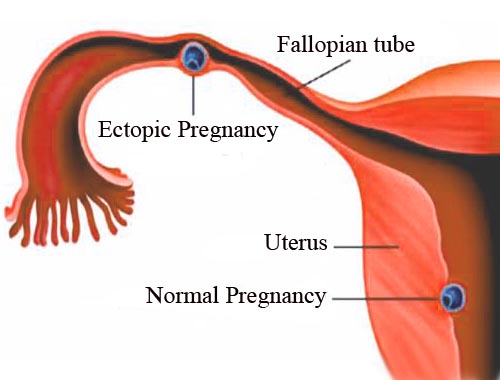Ectopic Pregnancy, Eccysis

Published: 18 Jun 2025
ICD9: 633.90 ICD10: O00.9 ICD11: JA01
It appears there's a typo in your question.
You likely meant to ask about "Ectopic Pregnancy, Ecchymosis." Let's break down what that means:
![]() Ectopic Pregnancy: This occurs when a fertilized egg implants and grows outside of the uterus. The most common location is in the fallopian tube, but it can also occur in other places like the ovary, cervix, or abdomen. An ectopic pregnancy is never viable and can be life-threatening to the mother if left untreated.
Ectopic Pregnancy: This occurs when a fertilized egg implants and grows outside of the uterus. The most common location is in the fallopian tube, but it can also occur in other places like the ovary, cervix, or abdomen. An ectopic pregnancy is never viable and can be life-threatening to the mother if left untreated.
![]() Ecchymosis: This is the medical term for bruising. It's caused by blood leaking from broken blood vessels under the skin. Bruises typically start out reddish or purplish, then change to bluish-black, and eventually fade to green or yellow as the body reabsorbs the blood.
Ecchymosis: This is the medical term for bruising. It's caused by blood leaking from broken blood vessels under the skin. Bruises typically start out reddish or purplish, then change to bluish-black, and eventually fade to green or yellow as the body reabsorbs the blood.
Ectopic Pregnancy and Ecchymosis
The question that remains is how the two correlate. Ecchymosis after being diagnosed with an ectopic pregnancy is usually related to medical intervention and/or rupture.
![]() Ruptured Ectopic Pregnancy: If the ectopic pregnancy is left untreated and grows, it can cause the fallopian tube (or other site) to rupture. This can lead to severe internal bleeding, which, though not immediately visible as bruising, can eventually lead to ecchymosis at the incision site if it is surgically treated. This ecchymosis would be similar to any post-operative bruising.
Ruptured Ectopic Pregnancy: If the ectopic pregnancy is left untreated and grows, it can cause the fallopian tube (or other site) to rupture. This can lead to severe internal bleeding, which, though not immediately visible as bruising, can eventually lead to ecchymosis at the incision site if it is surgically treated. This ecchymosis would be similar to any post-operative bruising.
![]() Medical Treatment: The use of medications to treat an ectopic pregnancy and surgery, as well, may cause bruising at needle insertion or incision sites.
Medical Treatment: The use of medications to treat an ectopic pregnancy and surgery, as well, may cause bruising at needle insertion or incision sites.
Important Points
![]() Ectopic pregnancy is a serious medical condition that requires prompt diagnosis and treatment.
Ectopic pregnancy is a serious medical condition that requires prompt diagnosis and treatment.
![]() If you suspect you might have an ectopic pregnancy (e.g., you have a positive pregnancy test with unusual pain or bleeding), seek immediate medical attention.
If you suspect you might have an ectopic pregnancy (e.g., you have a positive pregnancy test with unusual pain or bleeding), seek immediate medical attention.
![]() Ecchymosis in the context of ectopic pregnancy is most likely related to the medical interventions used to treat it or internal damage from rupture.
Ecchymosis in the context of ectopic pregnancy is most likely related to the medical interventions used to treat it or internal damage from rupture.